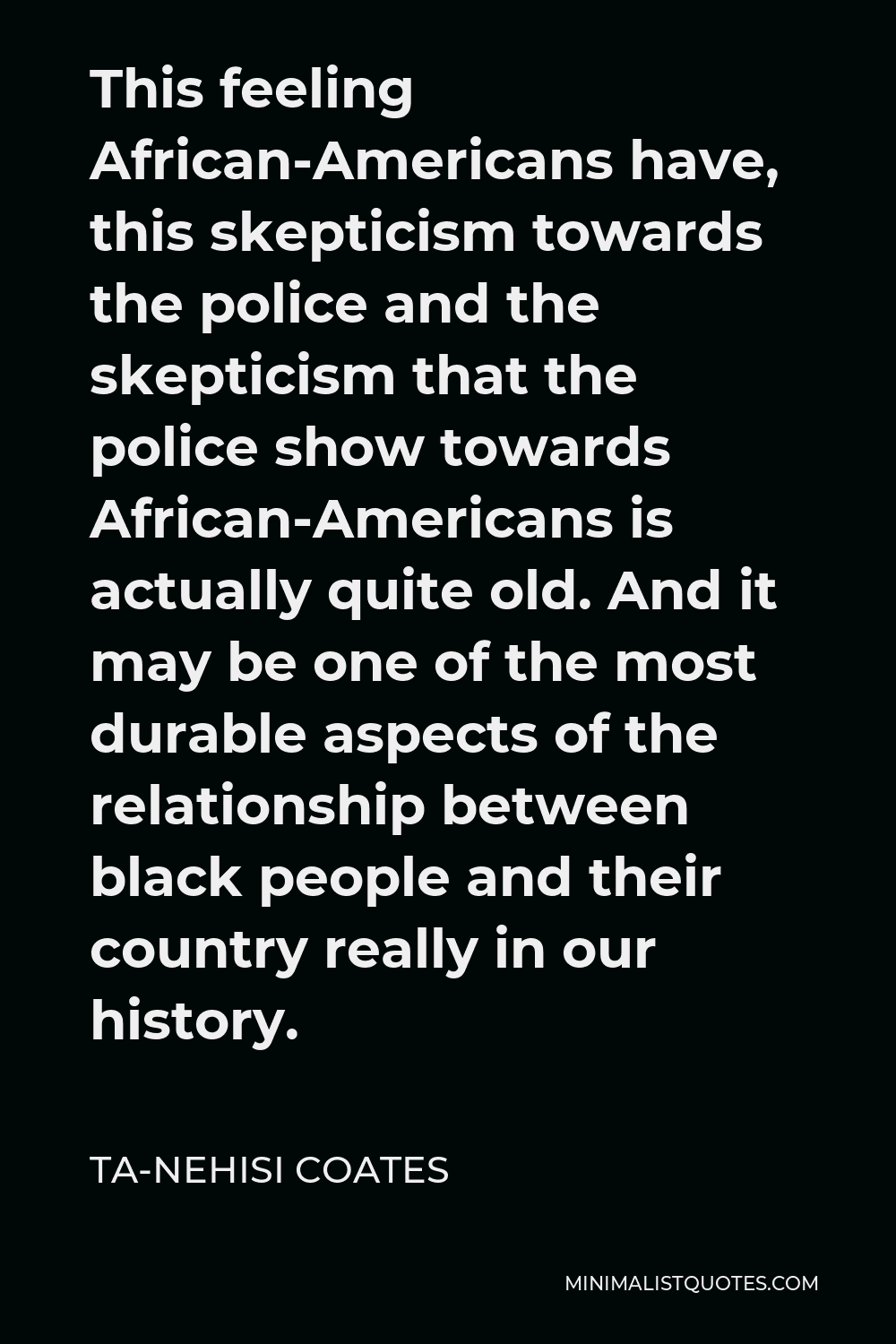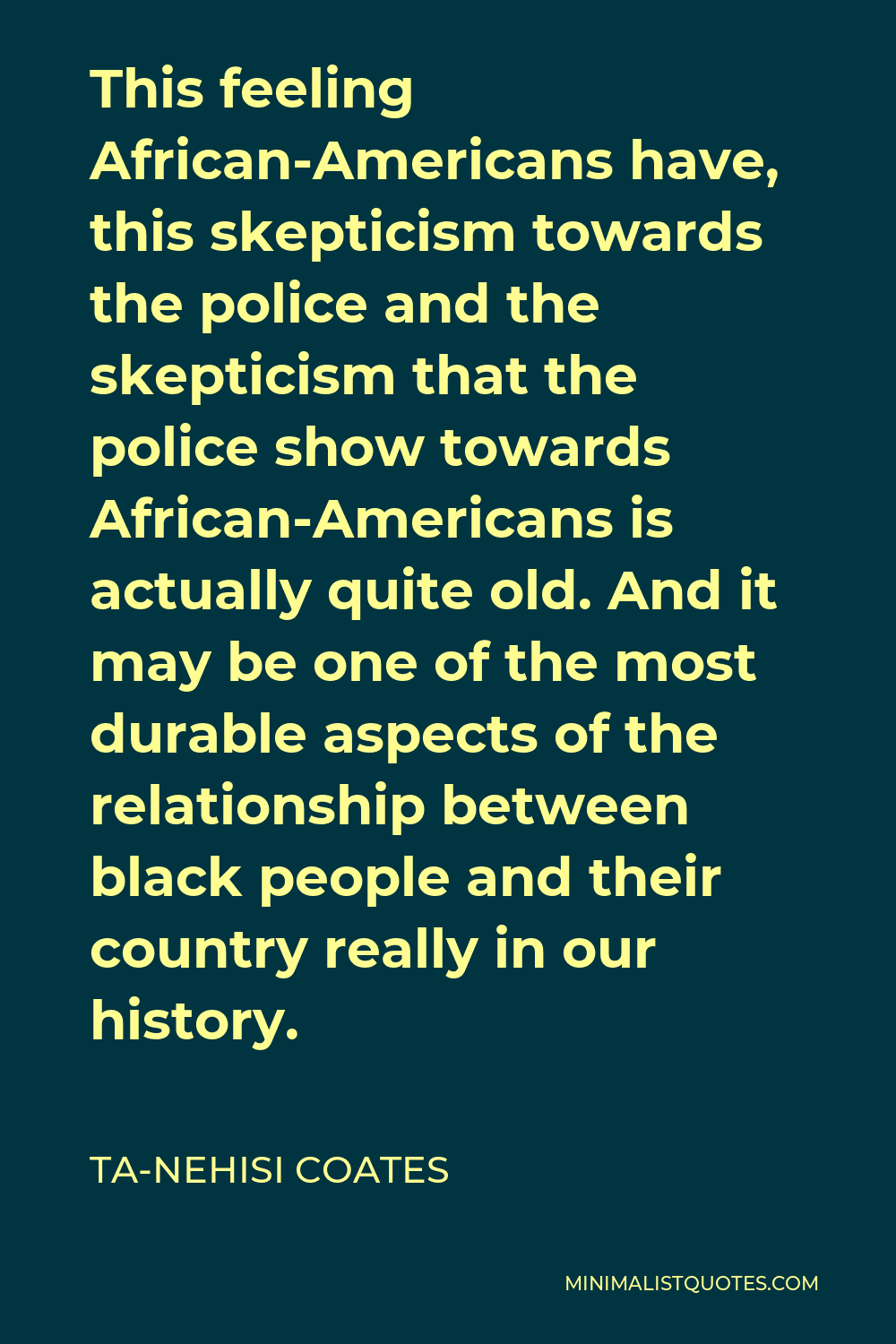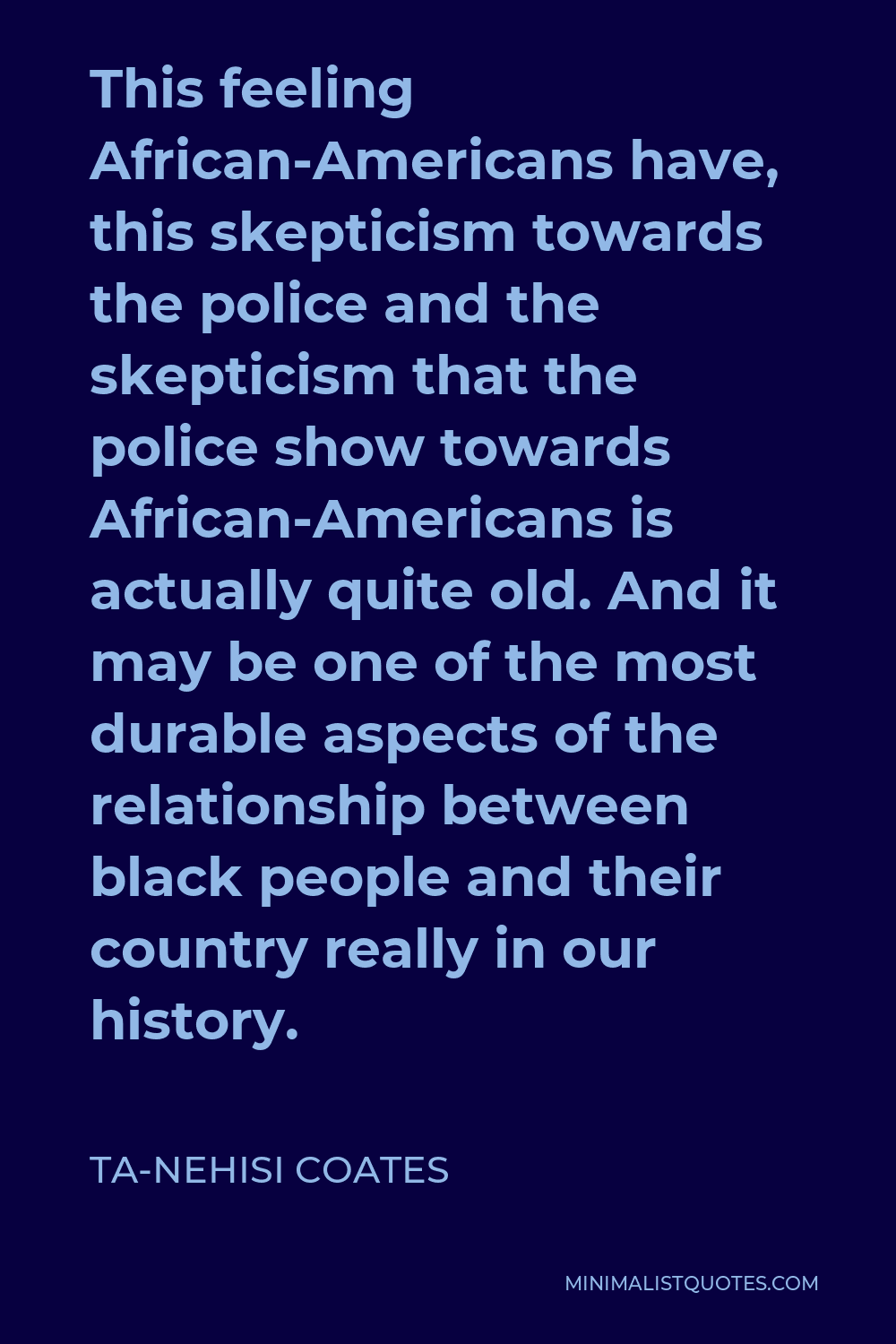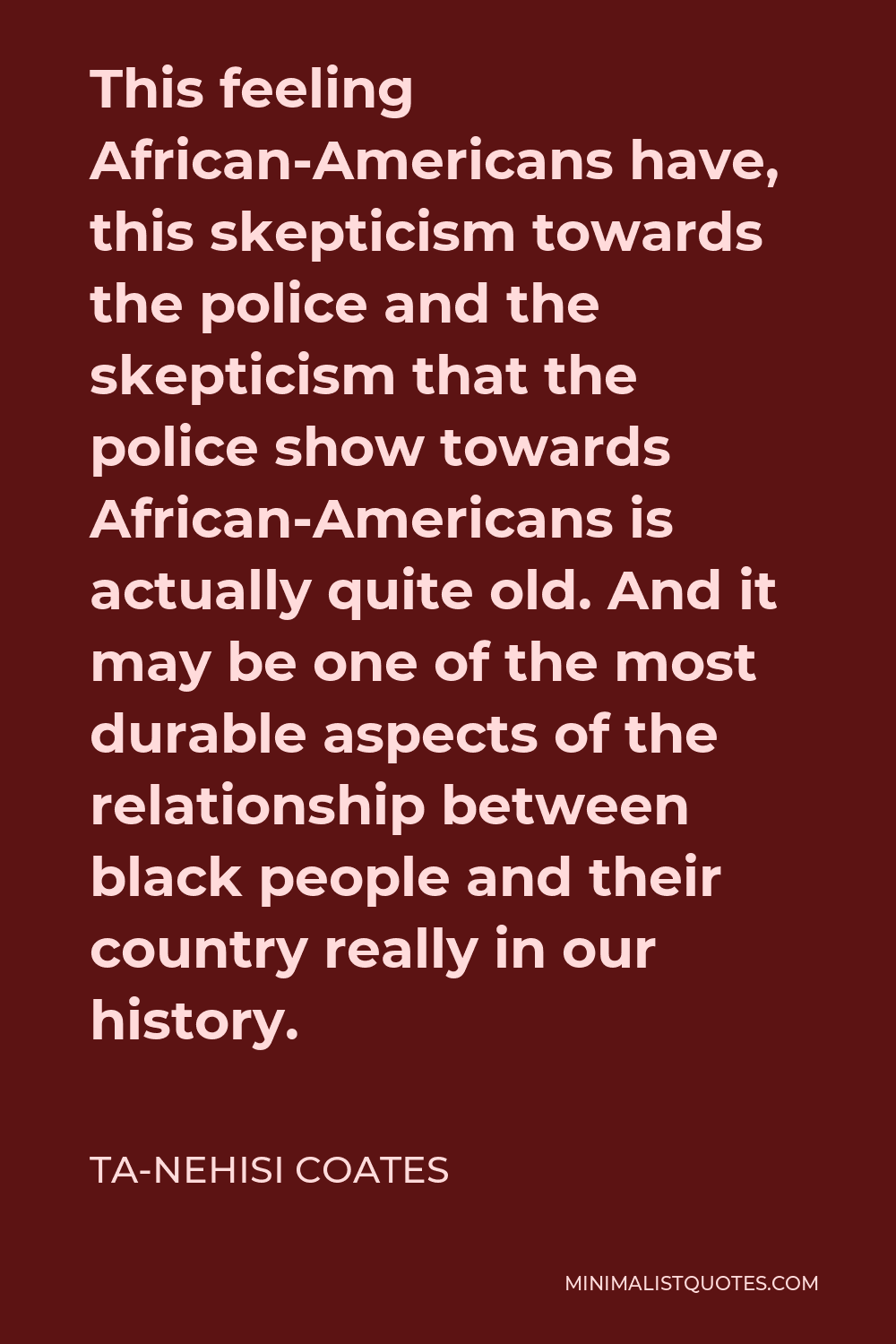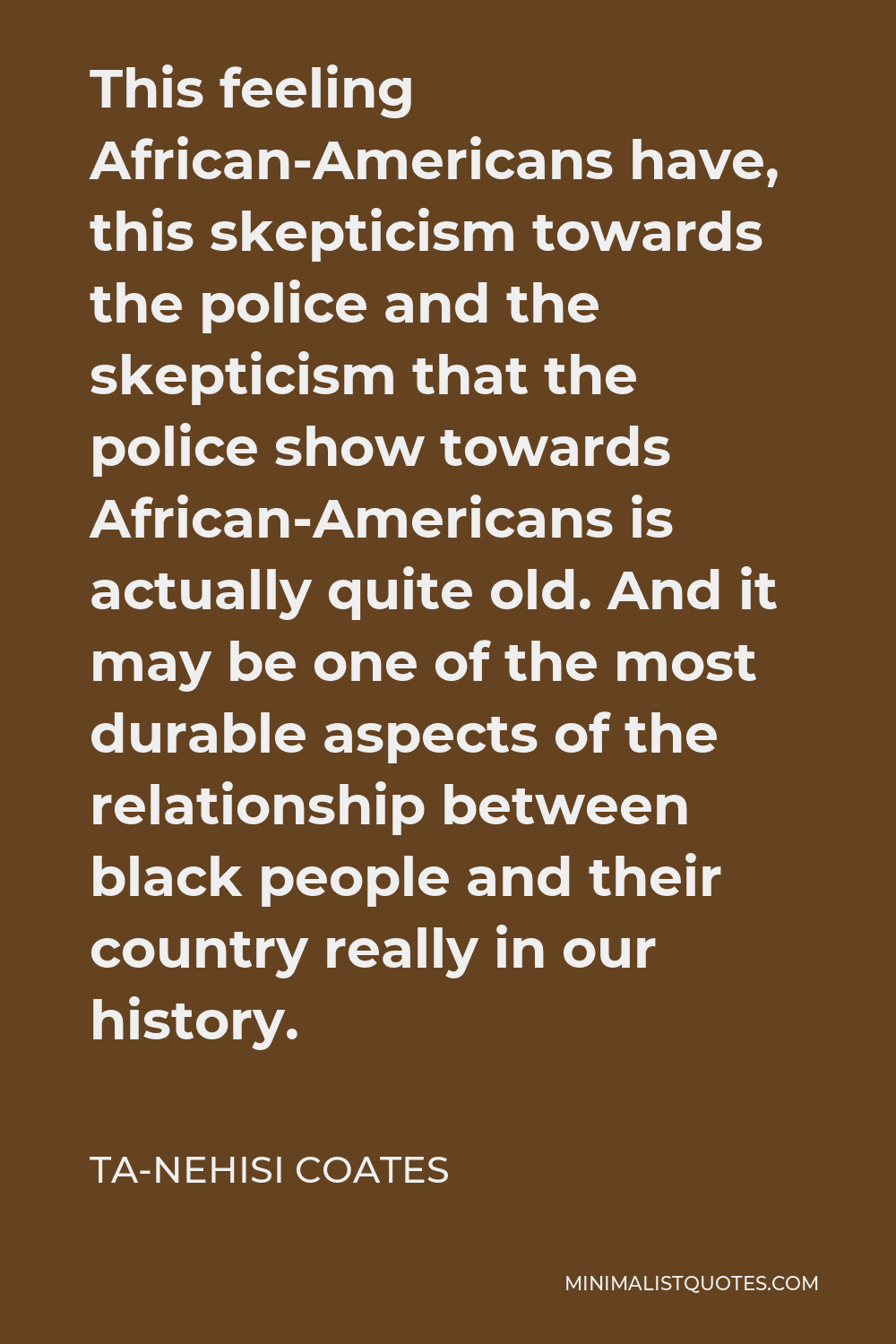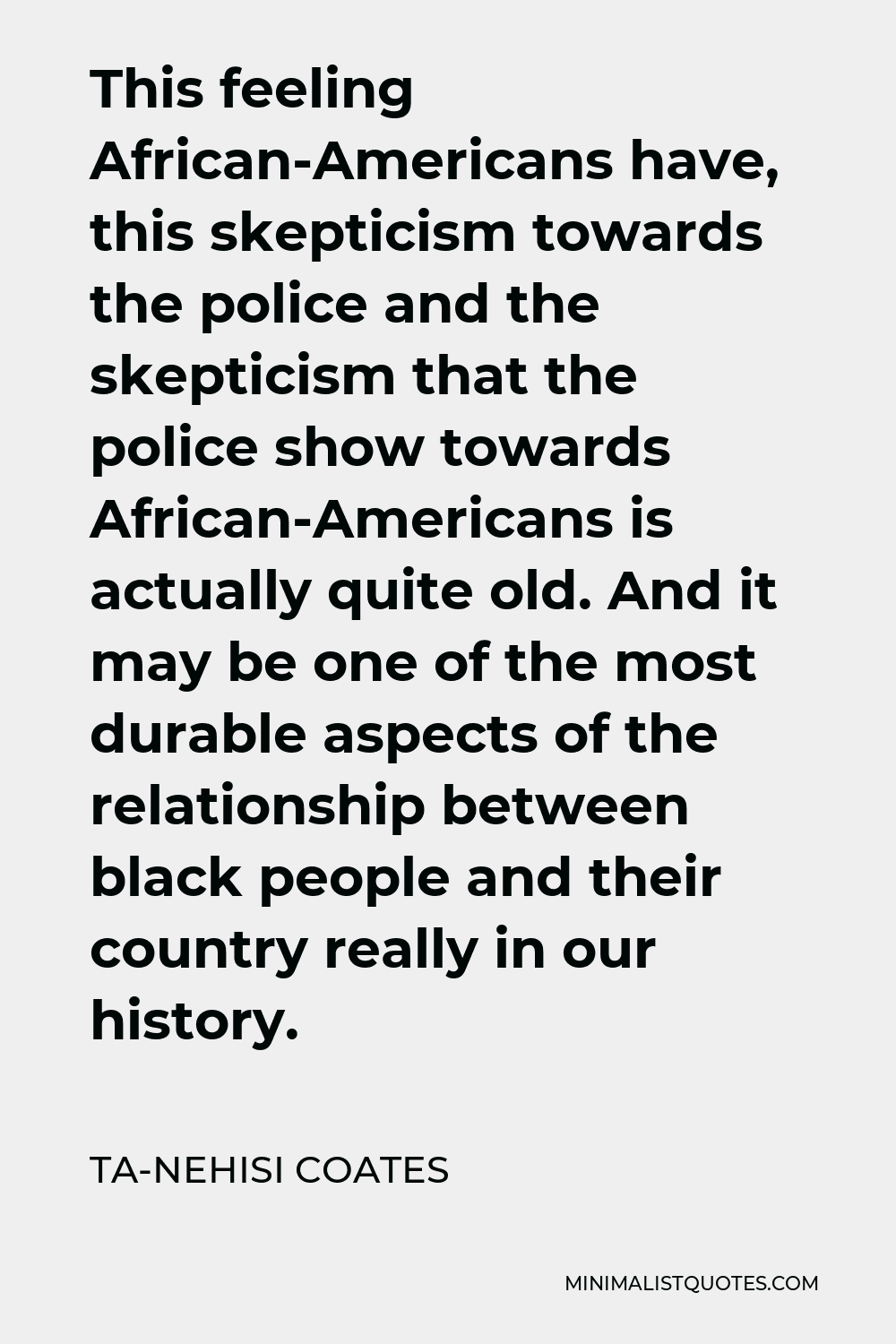[Barack Obama] grew up in Hawaii, far, far removed from the most, you know, sort of violent, you know, tendencies of Jim Crow and segregation. He wasn’t directly exposed to that. He was untraumatized.
TA-NEHISI COATESThis feeling African-Americans have, this skepticism towards the police and the skepticism that the police show towards African-Americans is actually quite old. And it may be one of the most durable aspects of the relationship between black people and their country really in our history.
More Ta-Nehisi Coates Quotes
-





![Ta-Nehisi Coates Quote - [Barack Obama] grew up in Hawaii, far, far removed from the most, you know, sort of violent, you know, tendencies of Jim Crow and segregation. He wasn’t directly exposed to that. He was untraumatized.](https://minimalistquotes.com/wp-content/uploads/2022/10/barack-obama-grew-up-in-hawaii-far-far-removed-fro-683x1024.jpg)

-





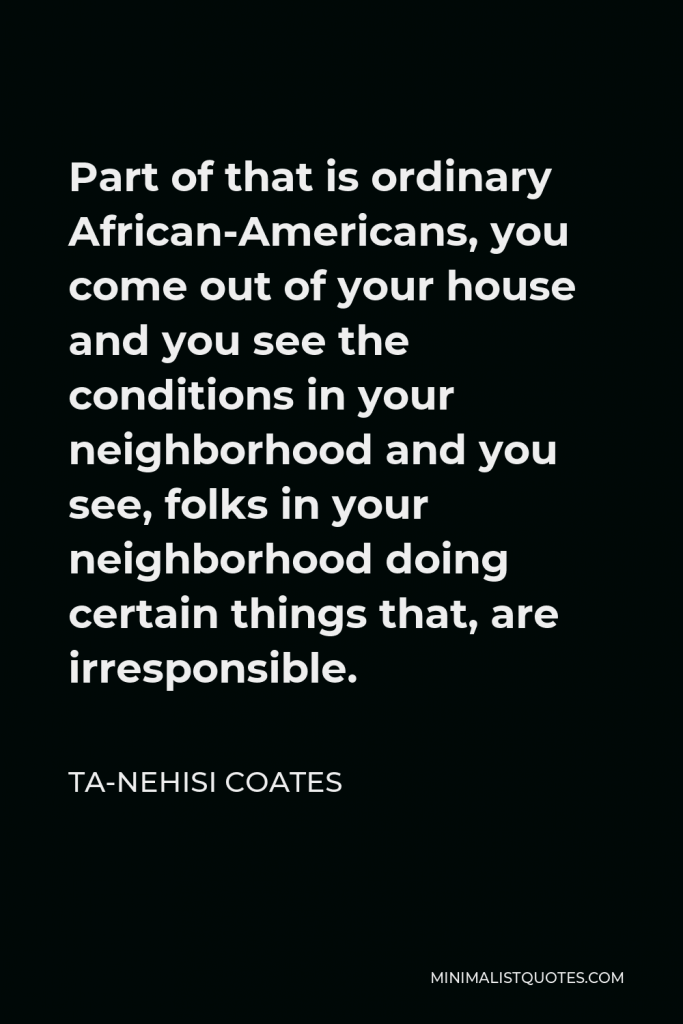

Part of that is ordinary African-Americans, you come out of your house and you see the conditions in your neighborhood and you see, folks in your neighborhood doing certain things that, are irresponsible.
TA-NEHISI COATES -





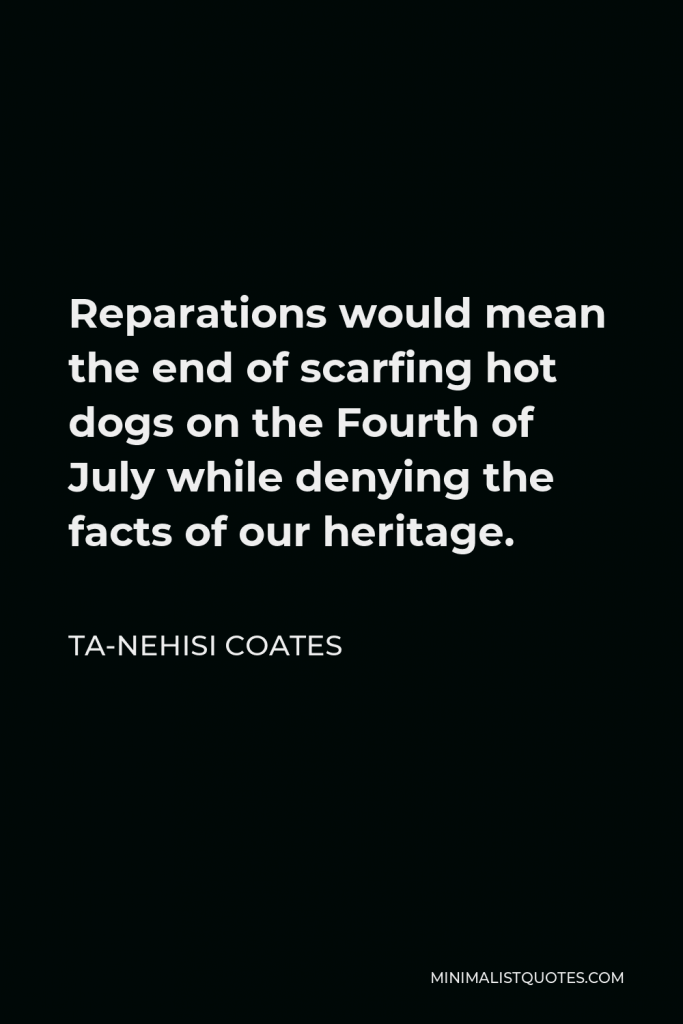

Reparations would mean the end of scarfing hot dogs on the Fourth of July while denying the facts of our heritage.
TA-NEHISI COATES -





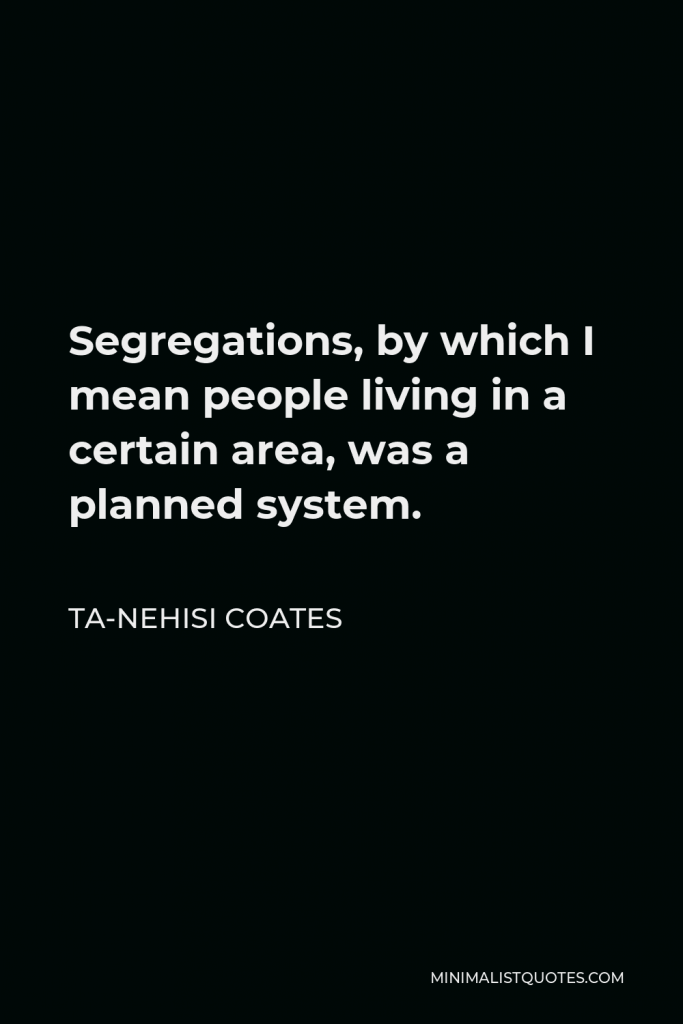

Segregations, by which I mean people living in a certain area, was a planned system.
TA-NEHISI COATES -





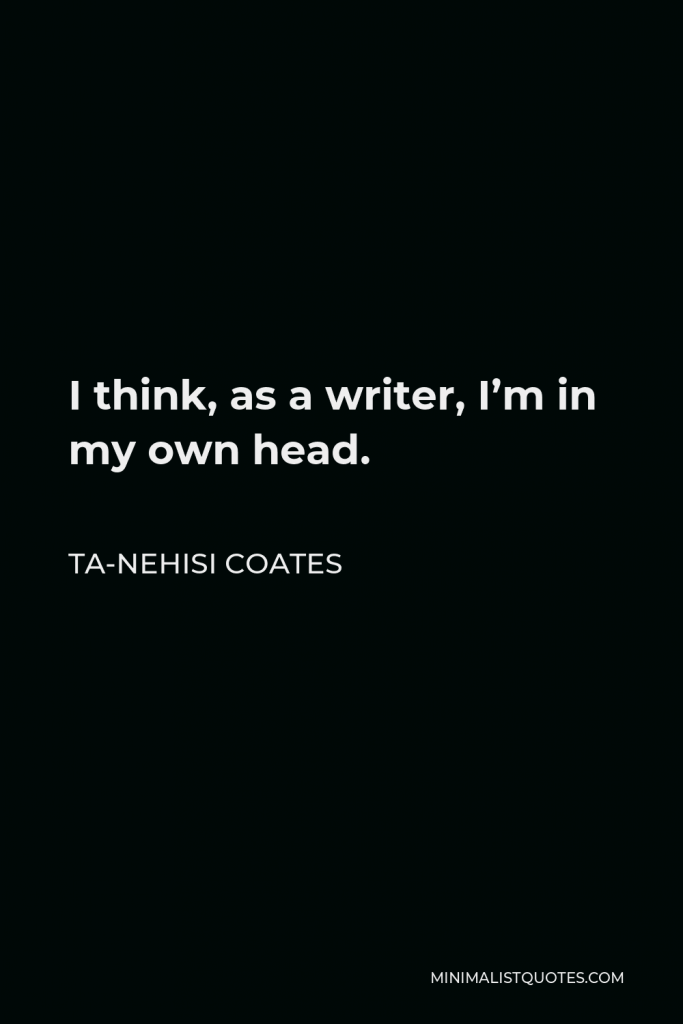

I think, as a writer, I’m in my own head.
TA-NEHISI COATES -





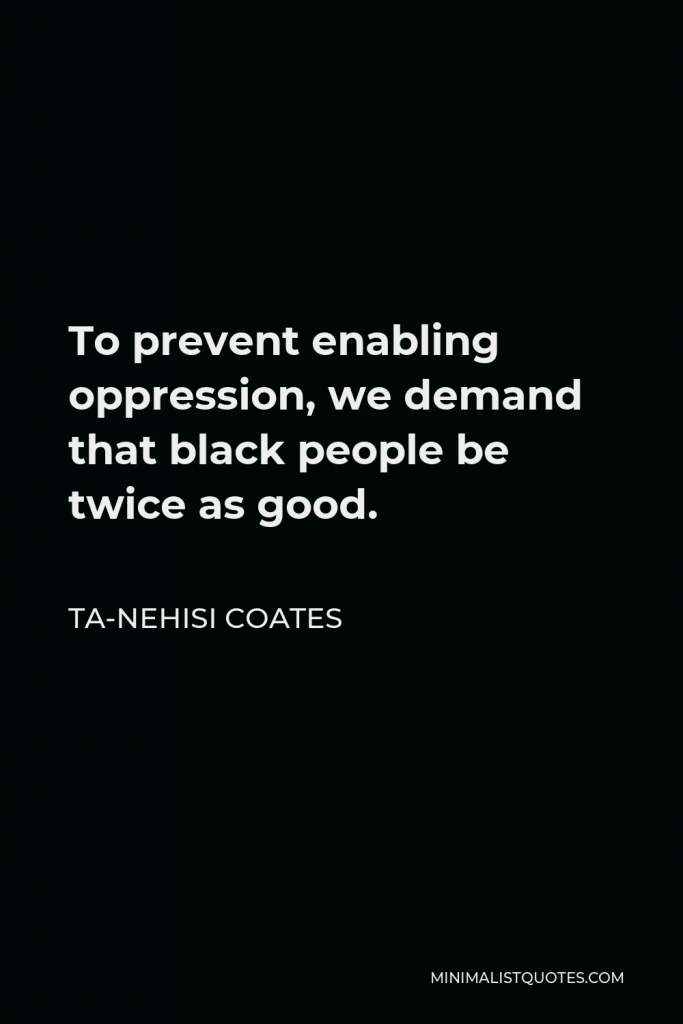

To prevent enabling oppression, we demand that black people be twice as good.
TA-NEHISI COATES -





![Ta-Nehisi Coates Quote - [Winning the White House was an achievement], but as an African-American, [Barack Obama], I think the symbolism is in how he conducted himself.](https://minimalistquotes.com/wp-content/uploads/2022/10/winning-the-white-house-was-an-achievement-but-as--683x1024.jpg)

[Winning the White House was an achievement], but as an African-American, [Barack Obama], I think the symbolism is in how he conducted himself.
TA-NEHISI COATES -





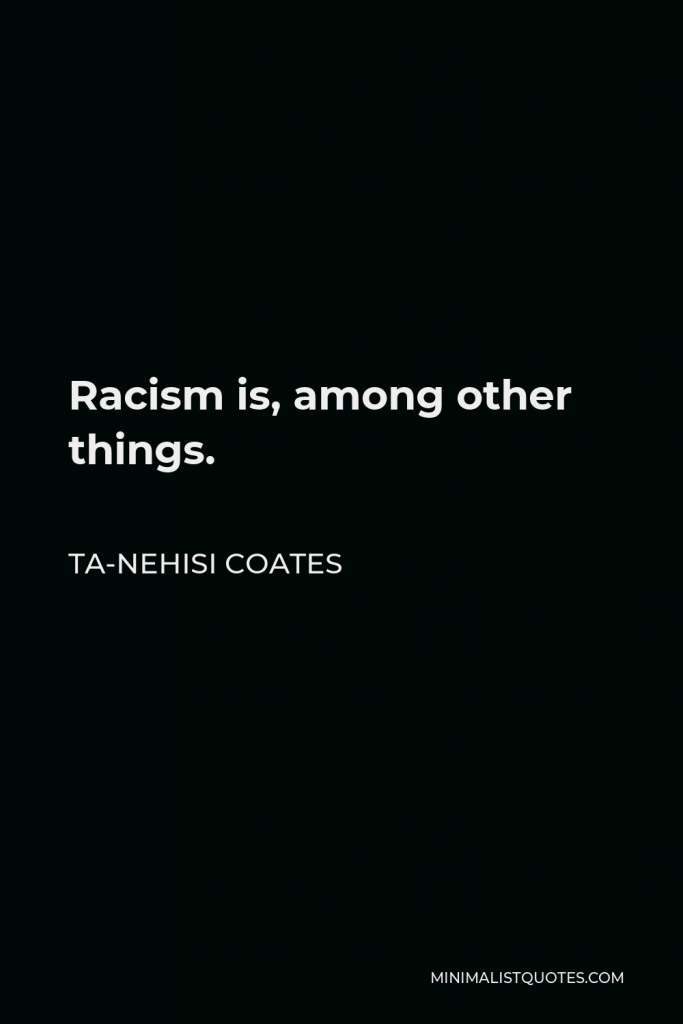

Racism is, among other things.
TA-NEHISI COATES -





![Ta-Nehisi Coates Quote - [E]mpathy – not squishy self-serving conflict avoidance – is the hand-maiden, not the enemy, of reason and intellectual inquiry.](https://minimalistquotes.com/wp-content/uploads/2022/10/empathy-not-squishy-self-serving-conflict-avoidanc-683x1024.jpg)

[E]mpathy – not squishy self-serving conflict avoidance – is the hand-maiden, not the enemy, of reason and intellectual inquiry.
TA-NEHISI COATES -





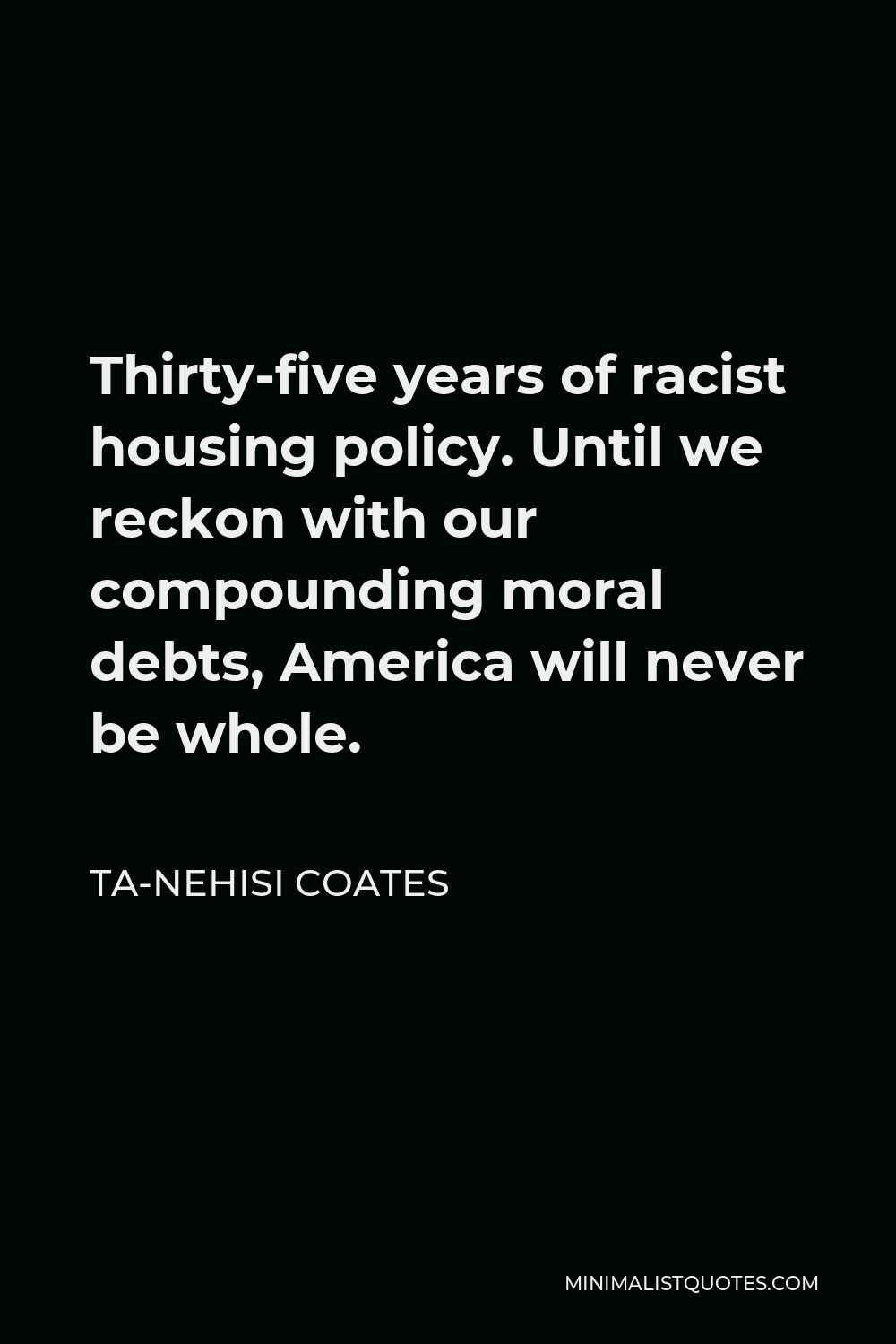
Thirty-five years of racist housing policy. Until we reckon with our compounding moral debts, America will never be whole.
TA-NEHISI COATES -





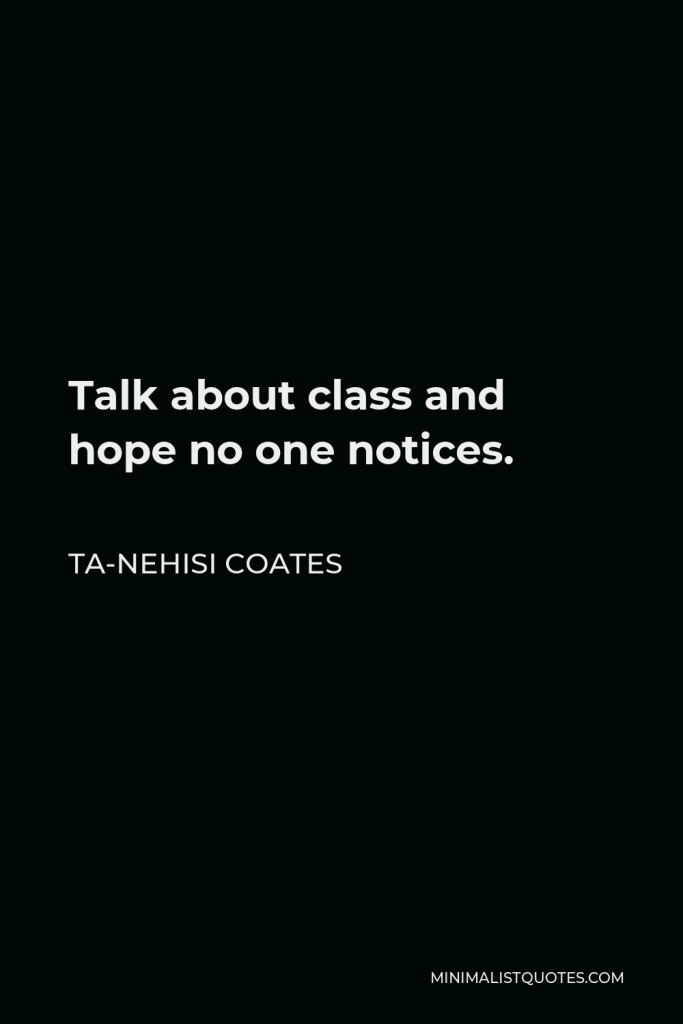

Talk about class and hope no one notices.
TA-NEHISI COATES -





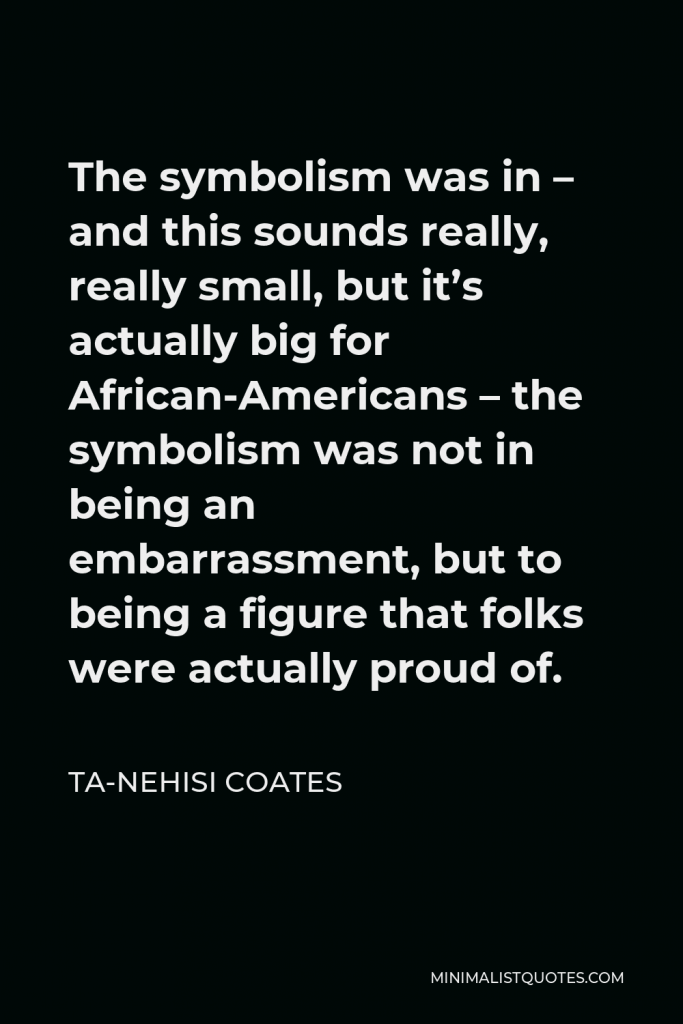

The symbolism was in – and this sounds really, really small, but it’s actually big for African-Americans – the symbolism was not in being an embarrassment, but to being a figure that folks were actually proud of.
TA-NEHISI COATES -





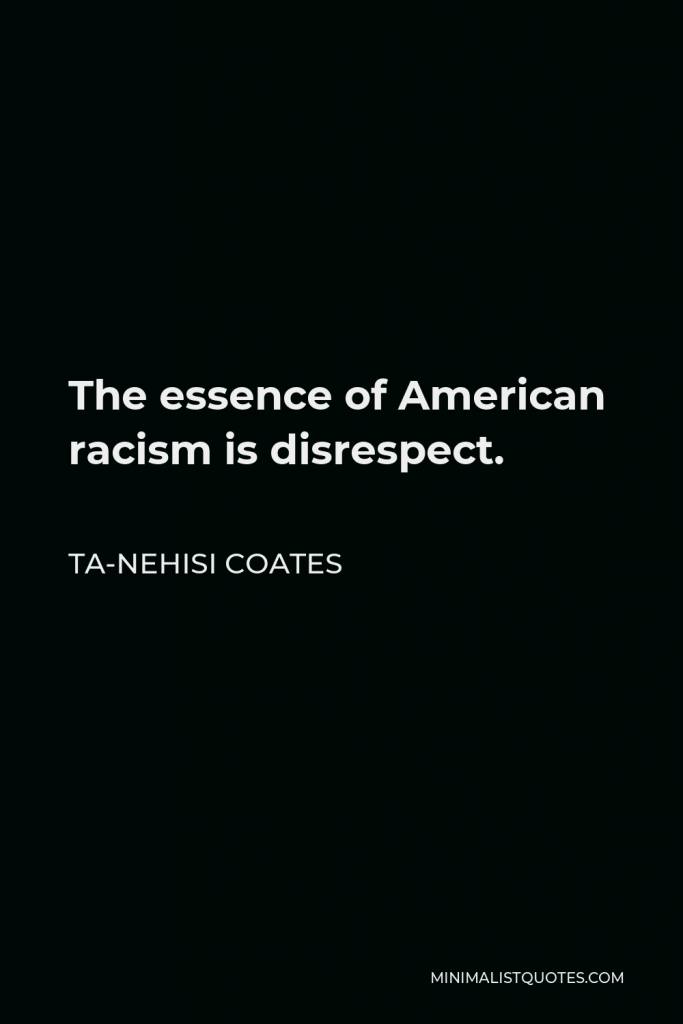

The essence of American racism is disrespect.
TA-NEHISI COATES -





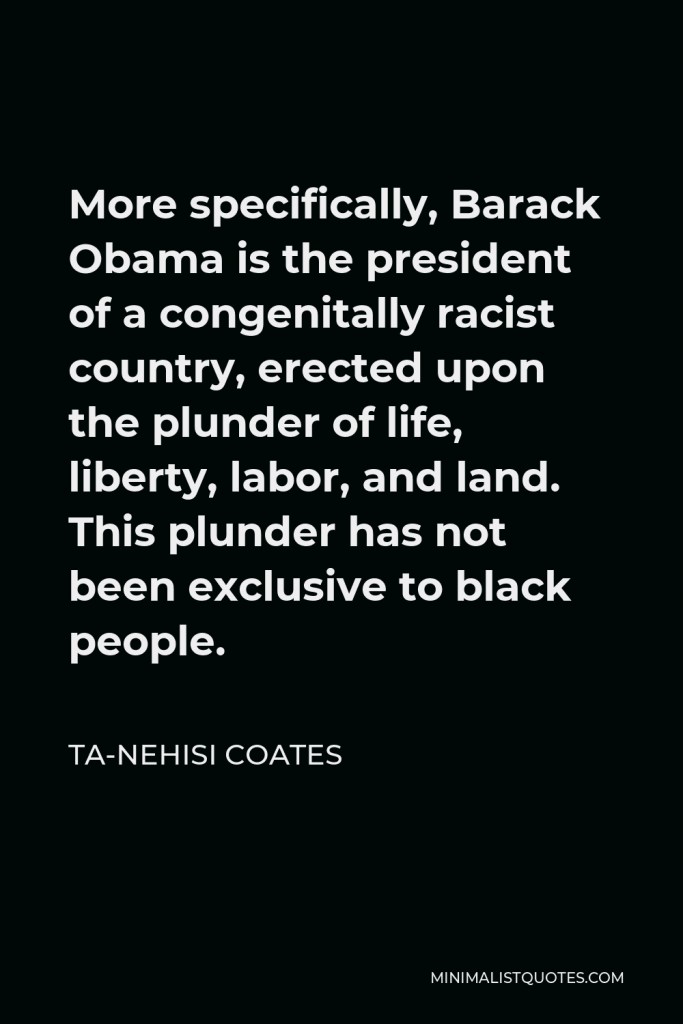

More specifically, Barack Obama is the president of a congenitally racist country, erected upon the plunder of life, liberty, labor, and land. This plunder has not been exclusive to black people.
TA-NEHISI COATES -





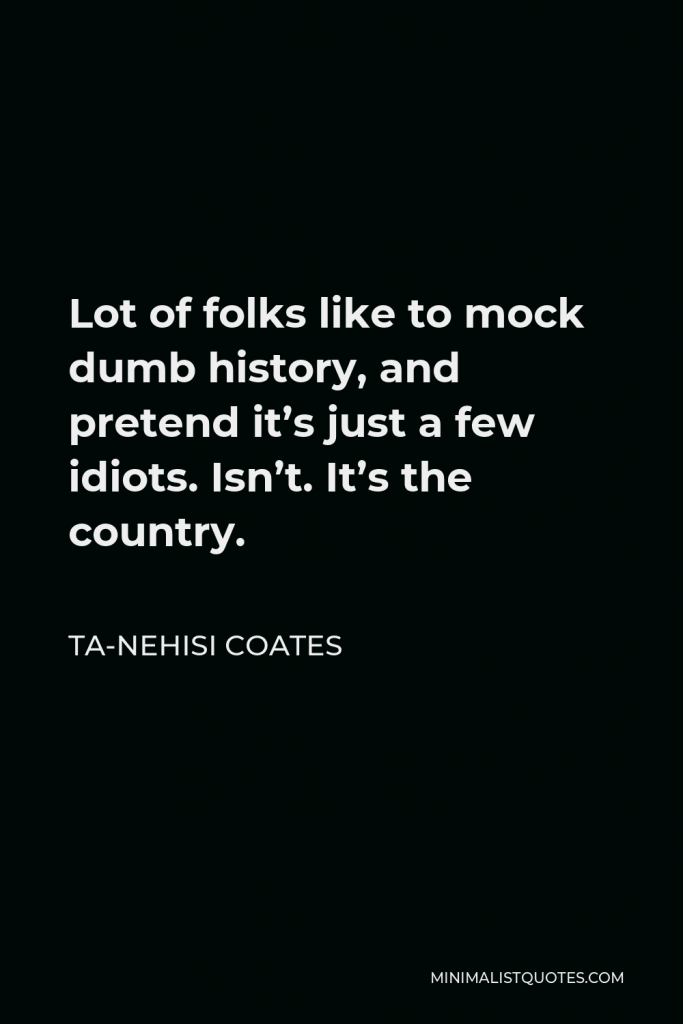

Lot of folks like to mock dumb history, and pretend it’s just a few idiots. Isn’t. It’s the country.
TA-NEHISI COATES -





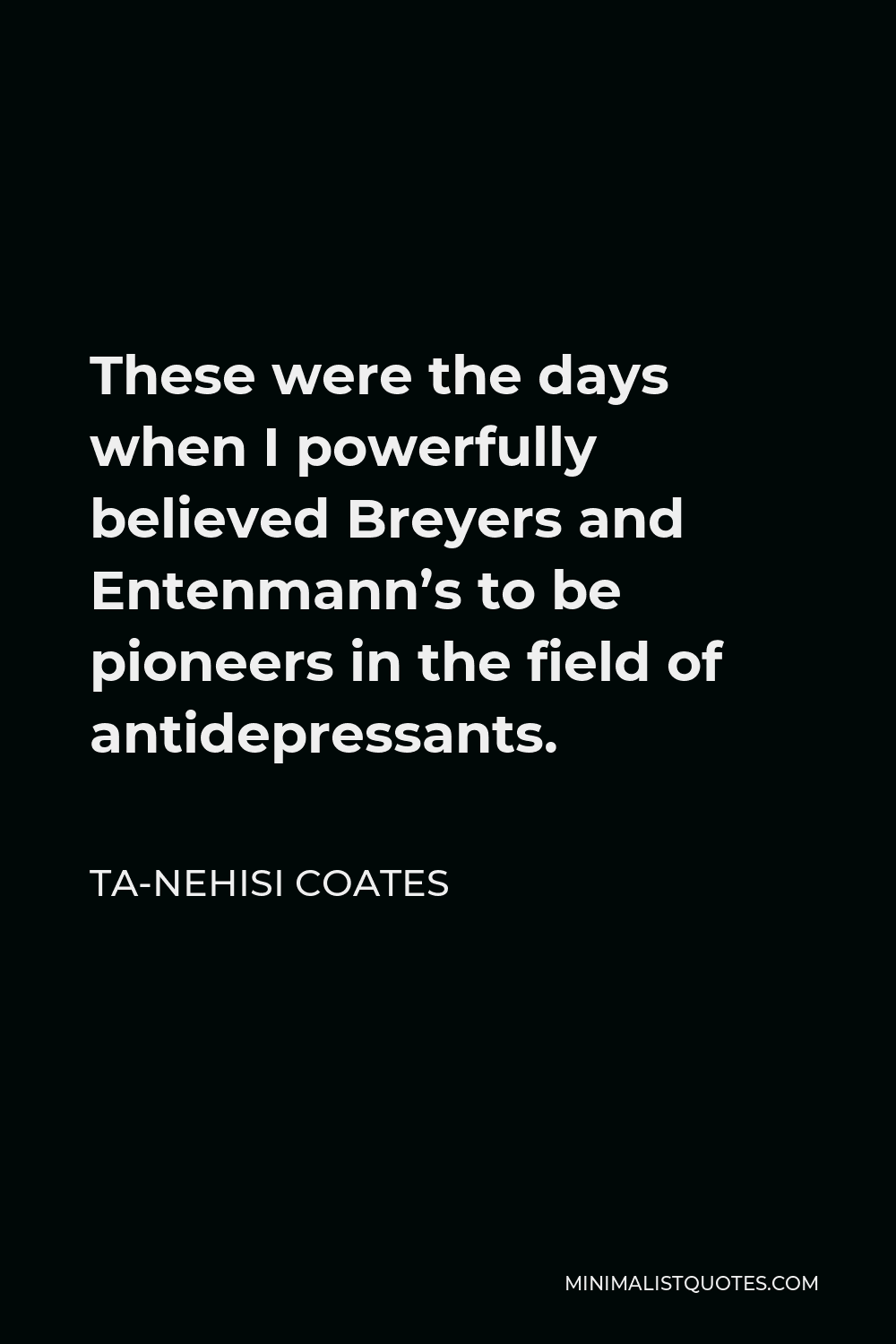
These were the days when I powerfully believed Breyers and Entenmann’s to be pioneers in the field of antidepressants.
TA-NEHISI COATES
